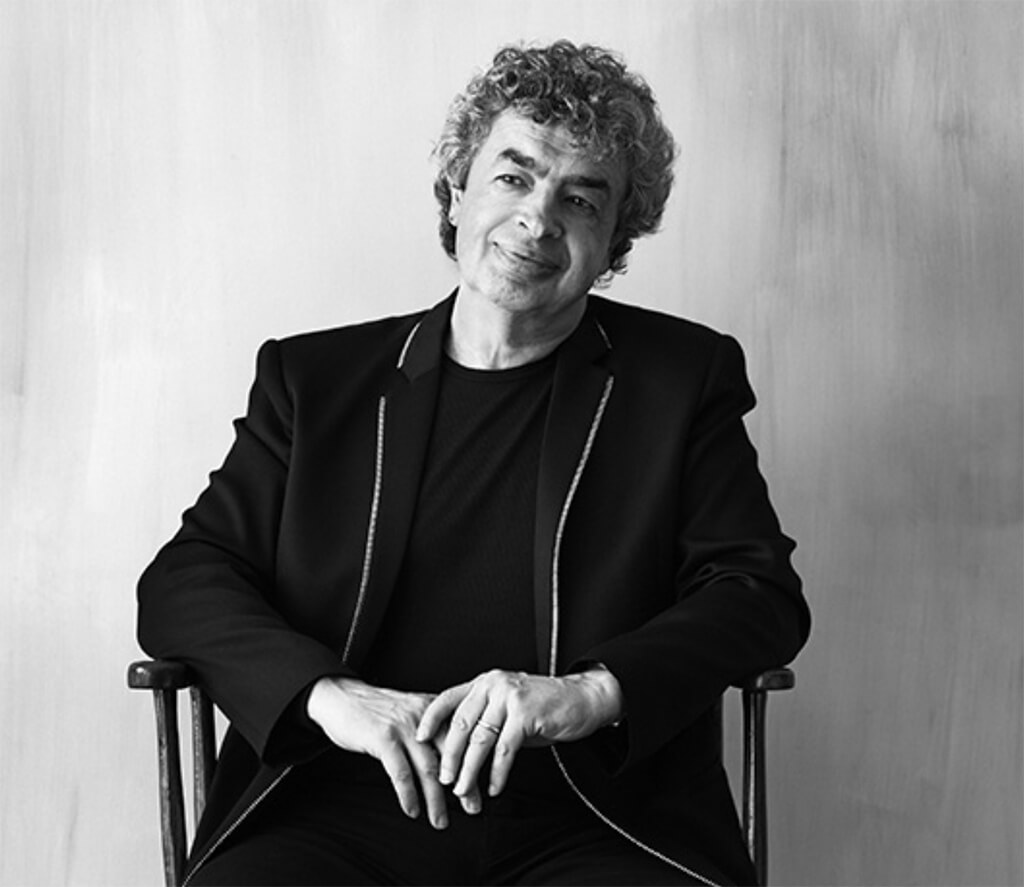
The Tchaikovsky Project: Tchaikovsky: Symphony No. 6 in B minor “Pathétique” Op. 74. Romeo and Juliet. Decca 4830656. Total Time: 63:53. Manfred Symphony Op. 58. Decca 4832321. Total Time: 59:23. Czech Philharmonic/Semyon Bychkov.
Last week the Czech Philharmonic announced the appointment of Semyon Bychkov as chief conductor and music director of the orchestra, beginning with the 2018-2019 season. Bychkov has been making regular appearances with the orchestra since 2013 and is in the midst of a major recording venture with the Czech Philharmonic called “The Tchaikovsky Project,” which, when completed in 2020, will include recordings of all six symphonies and tone poems and the three piano concertos.
Bychkov was born in Leningrad and received his initial training there, but left the Soviet Union when he was 20 to study at the Mannes School of Music in New York. Upon graduation, he quickly began to build an international career as a conductor. During the 1980s he was music director of the Buffalo Philharmonic, then moved to France to head up the Orchestre de Paris. Since then he has held positions in Cologne with the WDR Symphony and in Dresden with the Semperoper. Bychkov is married to Marielle Labèque of the Labèque sisters duo-piano team.

The first instalment of “The Tchaikovsky Project,” recorded in Dvořák Hall, Rudolfinum, Prague, the home of the Czech Philharmonic, includes Peter Ilyich Tchaikovsky’s last completed symphony, the Pathétique; from its opening bars, in which the solo bassoon is accompanied only by double basses divided in two parts, it is clear that Bychkov is giving us a fresh look at a familiar piece. I have rarely heard these bass parts played so well in tune, with such an even crescendo over four bars.
This section is followed by a sforzando played with unusual incisiveness and unanimity by bassoon, violas and basses. The Czech Philharmonic plays with a distinctive sound, especially in the winds. It is worth noting too the special timbre of the Czech bassoon. Then there are the clarinets. Although the Czech Philharmonic clarinettists no longer play with the pronounced vibrato so characteristic of the Talich era, and probably going back well into the Nineteenth Century, they still have a sound quite different from that of clarinettists in Vienna or Berlin. Even the cymbals have a distinctive sound; Romeo and Juliet abounds in cymbal crashes, but in this recording, they have more sizzle than percussiveness.
On the basis of this performance of the Pathétique, one can conclude that Bychkov is in no way interested in personalizing the music, or in exaggerating its emotional content. His tempos tend to be determined by the composer’s metronome markings and in some cases are even a little faster. No wallowing here. The orchestral balances are near-perfect and rhythms are pretty accurate too. The quality of the playing is first-rate and there is excitement in all the right places.

The performance of the Manfred Symphony is even better. There have been some excellent recent recordings conducted by other Russian-born conductors — Petrenko with the Royal Liverpool Philharmonic (Naxos 8.570568) and Jurowski with the London Philharmonic (LPO- 0009) — but Bychkov and the Czech Philharmonic, with the help of the Decca engineers, give us a reading that provides fresh insights on nearly every page of the score. For example, the fortissimo string chords on the first page have a strength and colour I had not heard before. A few pages later, there is heartrending tenderness. The scherzo movement is a masterpiece of orchestral invention in Tchaikovsky’s best ballet mode and the virtuosity of the Czech players here could not be finer. The slow movement, with its evocation of rustic Alpine life, flows beautifully under Bychkov, and the long and, for some critics, problematic final movement gets a totally convincing performance. Over the years this movement has been heavily criticized for its allegedly workmanlike and overly long fugal episodes, and it even became a tradition to make substantial cuts. Toscanini made an incredibly exciting recording of Manfred but he made some of these cuts and also altered the orchestration in numerous places. Bychkov shows that Tchaikovsky knew what he was doing and that the score — as written, is one of his greatest works.
The Czech Philharmonic has been making recordings since the 1930s, most of them for Czech record labels. While the orchestra has always been recognized for its distinctive sound and tradition, it is rarely mentioned in the same breath with other fine European orchestras such as the Vienna Philharmonic, the Berlin Philharmonic or the Royal Concertgebouw Orchestra. Now, with Semyon Bychkov in charge and Decca Classics supporting it, the Czech Philharmonic may finally get the recognition it deserves.
The playing on these first two releases of “The Tchaikovsky Project” is absolutely first rate, and the recording quality, with producer Holger Urbach in charge, is state-of-the-art.
The Tchaikovsky Project is available at amazon.ca: Volume I / Volume II.
#LUDWIGVAN
Want more updates on Toronto-centric classical music news and reviews before anyone else finds out? Follow us on Facebook or Twitter for all the latest.
- SCRUTINY | TSO Lets Berlioz Do The Talking In Season Opener - September 21, 2018
- RECORD KEEPING | Even Yannick Nézet-Séguin Can’t Make Us Love Mozart’s La Clemenza di Tito - September 6, 2018
- RECORD KEEPING | Giovanna d’Arco With Anna Netrebko Explains Why The Best Operas Survive - August 30, 2018



